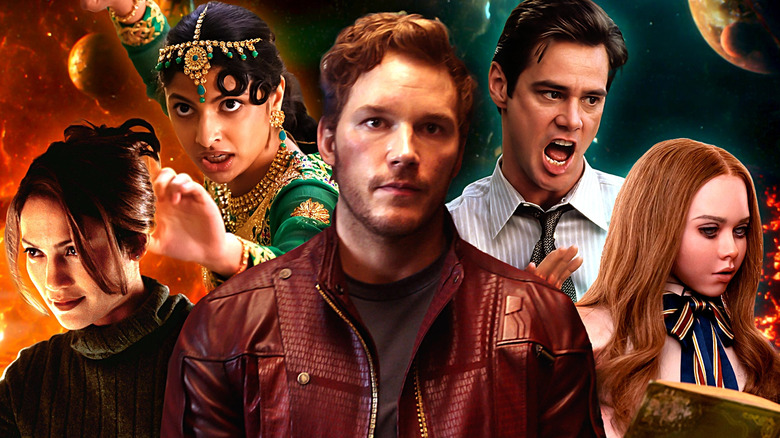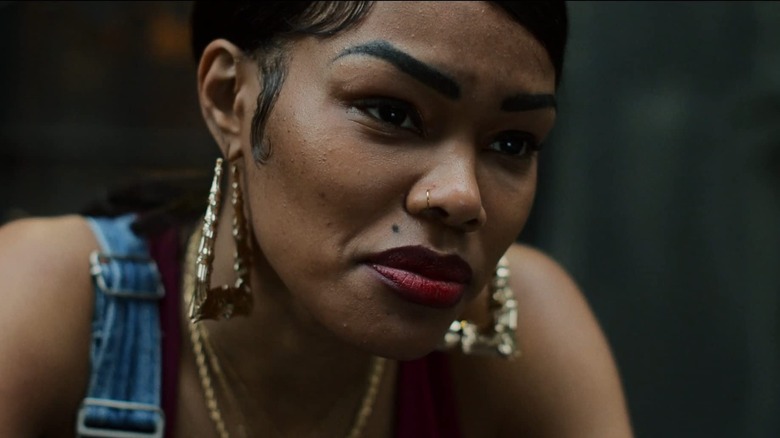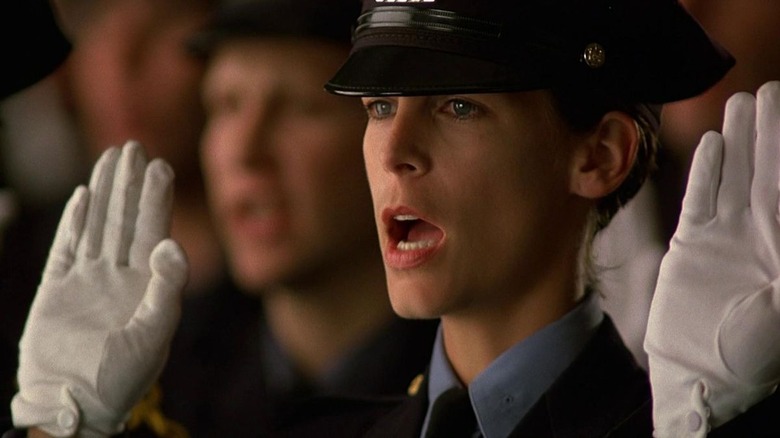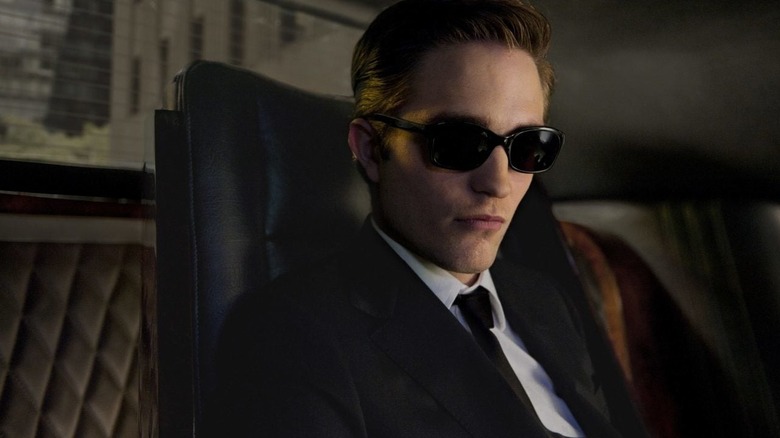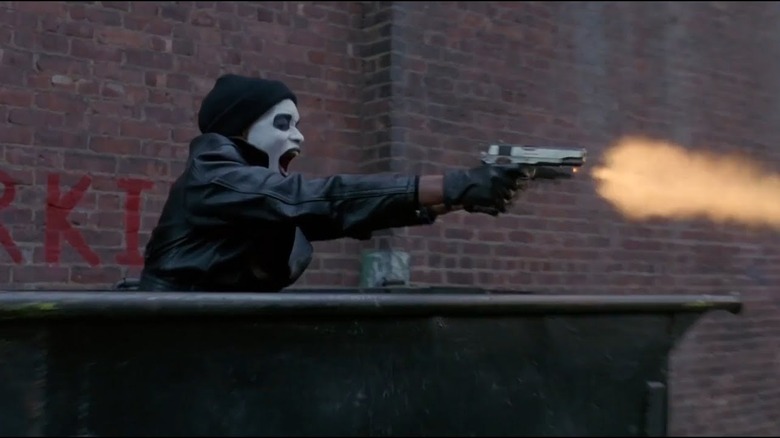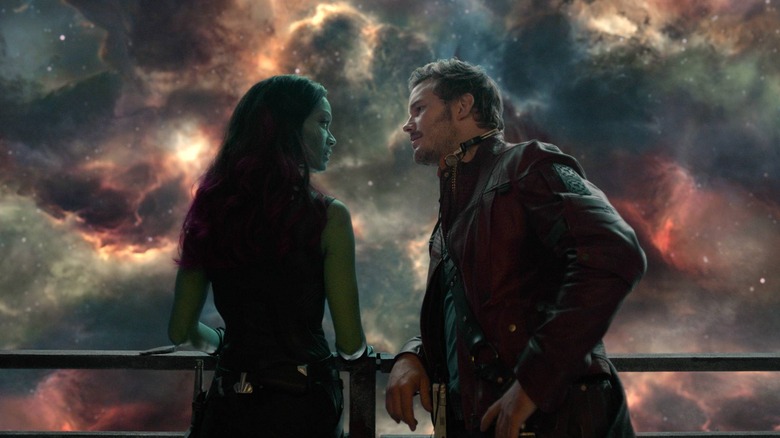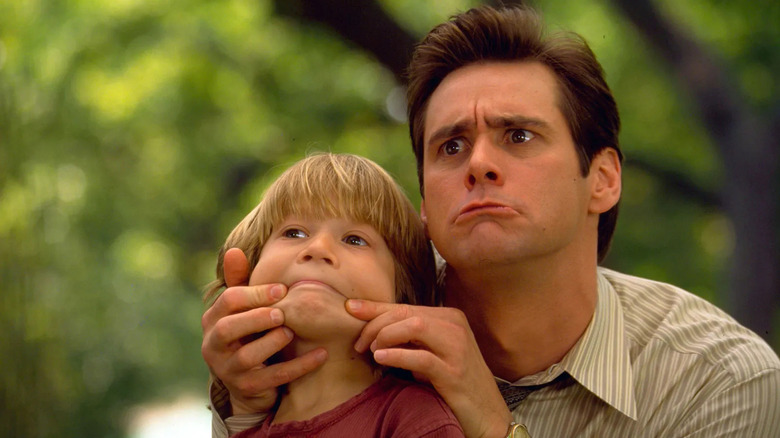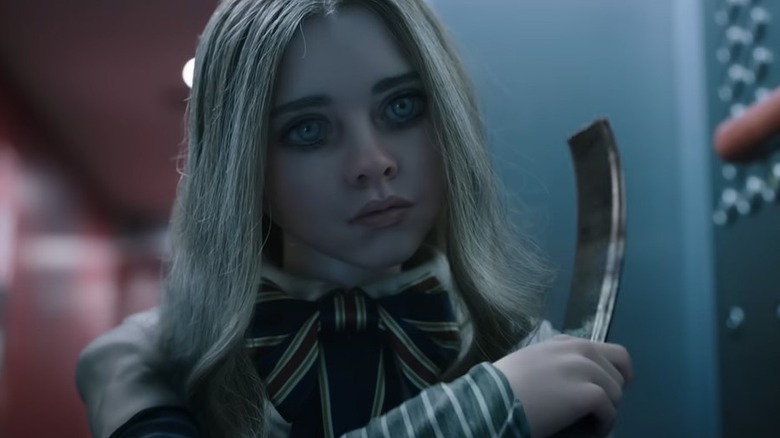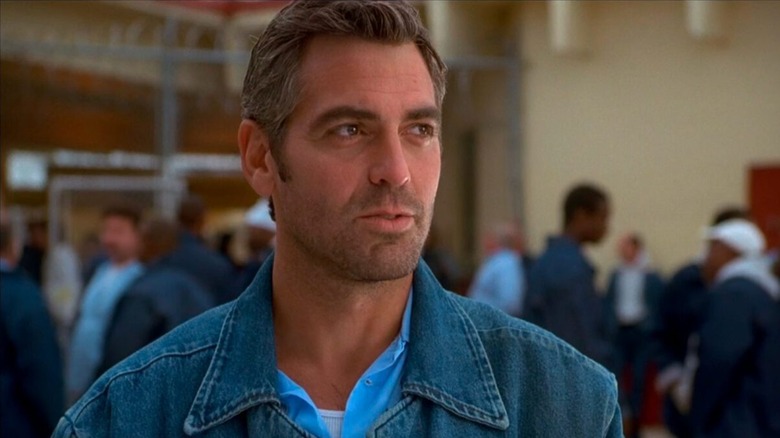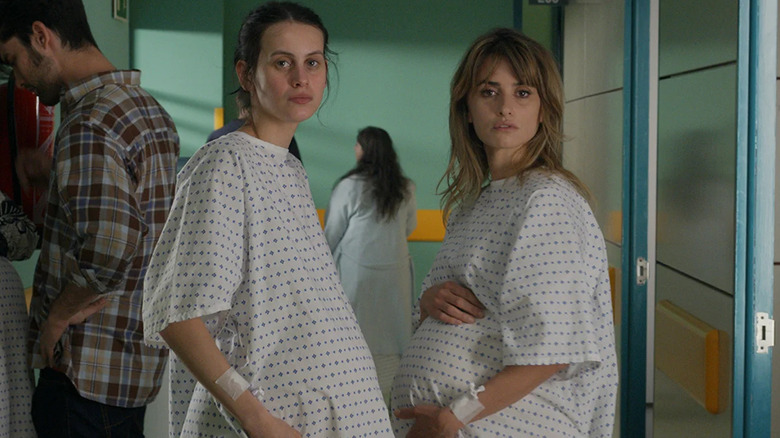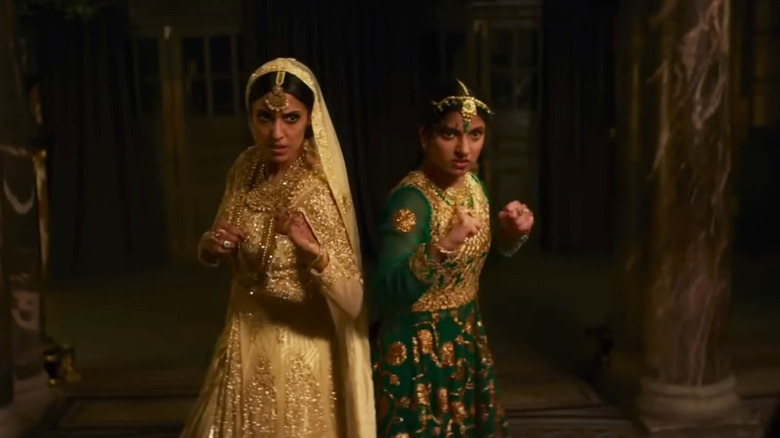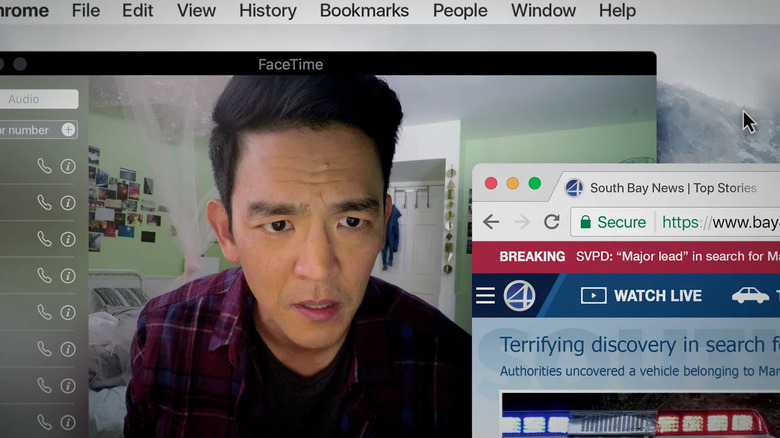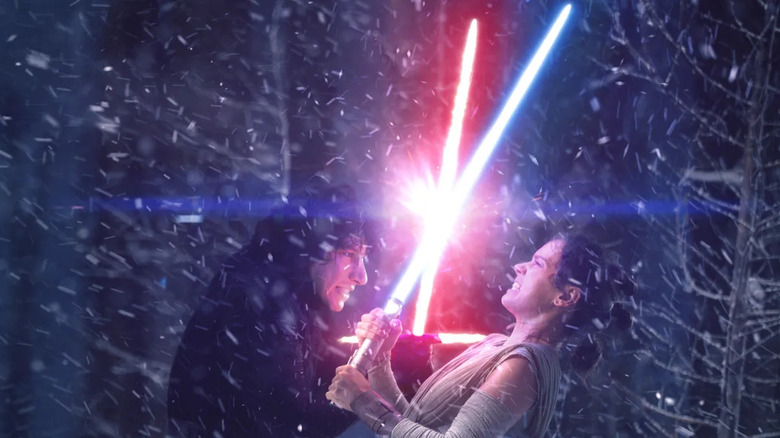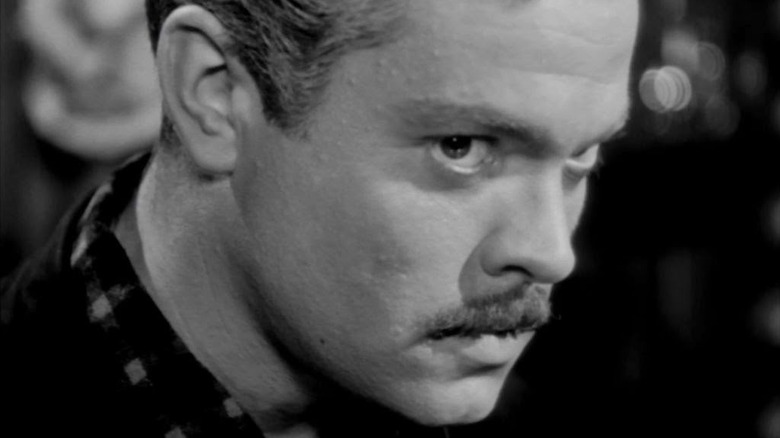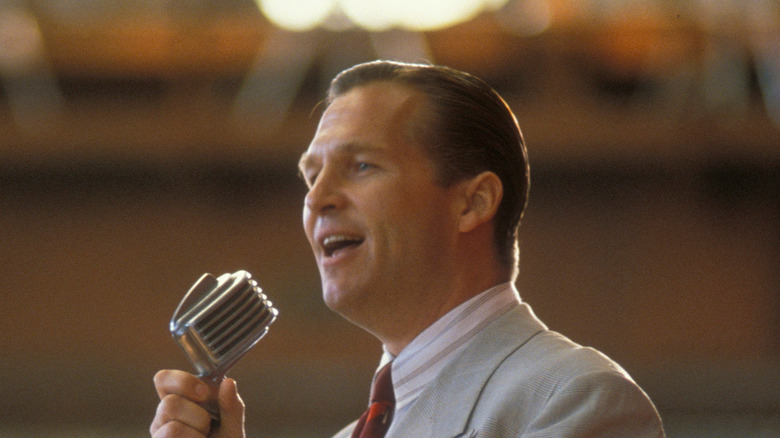The 15 Best Movies On Starz Right Now
Let's be real: there are approximately 900,000 streaming and premium cable services you can watch content on at any given moment. How the heck do you sift through all of that?
Well, if you happen to subscribe to Starz — which, like HBO, offers a pay channel and a premium streaming service to access its content — we've got your back. Unlike services like Disney+, Starz is less beholden to the whims of any defining creative architect; they host films from studios with a diverse slate, like Lionsgate and Universal, giving their programming an eclectic and decidedly more mature fare.
So say goodbye to pushing "down" on your Roku remote through countless titles, falling asleep before selecting a single one. We've sorted through the Starz library and are here to bring you the 15 best movies on Starz right now, a diverse array of titles with different vibes. Happy watching, Starz subscribers!
A Thousand and One
Writer and director A. V. Rockwell's feature debut "A Thousand and One" is a gorgeous feat of drama, boasting stunning visuals from DP Eric K. Yue and a star-making turn from multi-talented actor and musician Teyana Taylor.
Taylor plays Inez, an ex-con who makes the bold step of kidnapping her son out of the foster care system to raise him on her own. Through the time-jumping tale (which includes three actors playing Inez's son Terry, a la "Moonlight"), Inez tries to give her child a better life while reckoning with troubled relationships, the specter of gentrification, and an ever-changing Harlem at the turn of the new millennium.
Rockwell avoids many of the "misery porn" pitfalls that could come with such a tale, instead finding authenticity with every choice, making a film that delivers big statements about American life by focusing on the small choices. Taylor should have been nominated for the Oscar; her performance is nuanced and startling at every turn.
Blue Steel
One of the best action movies from a female director, Kathryn Bigelow, "Blue Steel" stars Jamie Lee Curtis as a beleaguered police officer whose gun is stolen by a madman (Ron Silver) and used to commit murders across New York City, implicating Curtis. As she tries to clear her name and find the real killer, Silver's quest for carnage takes a turn into obsession, leaving Curtis no choice but to move outside of the law.
"Blue Steel" has tinges of psychological and slasher horror, a genuinely provocative reset for the common "cop on the edge" subgenre of action thrillers in the 1980s and '90s. Bigelow, whose recent work tends to play in handheld, docu-style realism, is much more stylized and formal here, giving the picture uncommon energy.
And while some of the choices surrounding gender dynamics may play a little cringey in the 21st century, it's interesting to reckon with those as relics of their time in conversation and conflict with the creative team behind said choices. "Blue Steel" is a genre gem for the connoisseur looking for something different.
Cosmopolis
From "Scanners" to "The Fly," Canadian genre auteur David Cronenberg has never made a normal film; his overall vibe is "horny and disgusted at the same time." But "Cosmopolis" is particularly odd, even for him, resulting in a one-of-a-kind work that retains the director's particular brand of cerebral terror while expanding what he's capable of.
Basically, the flick takes place in one limousine following one character, young billionaire Eric Parker (Robert Pattinson, realizing in real-time he has way more fun playing freaks and weirdos). Parker's absurd journey through a gridlocked New York City includes all kinds of digressions, vignettes, and visits from some wonderful character actors knocking their scenes out of the park (including the always welcome Paul Giamatti and Juliette Binoche).
Cronenberg's screenplay is based on a novel by the always idiosyncratic Don DeLillo (whose work also inspired Noah Baumbach to make a borderline inscrutable sci-fi picture, "White Noise"), and instead of making the source material more "cinematic" or "traditionally structured," Cronenberg leans into the novelistic nature as a feature, not a bug. This is a film wholly uninterested in a hero's journey or any kind of traditional catharsis. Instead, it's a blast of buckshot against our various anxieties in this increasingly absurd modern world, one that hits you in the gut and brain.
Dead Presidents
Coming from the always stylish Hughes Brothers, Albert and Allen, after their startling debut "Menace II Society," "Dead Presidents," one of the best heist movies of all time, provides an interesting and satisfying mix of genre thrills and somber social commentary.
The period film stars previous Hughes muse Larenz Tate as Anthony Curtis, a Vietnam War veteran who struggles acclimating to civilian society due to PTSD and the lack of infrastructure afforded to returning veterans. He and a crew of fellow Vietnam vets, all of whom are struggling with misery themselves (including an interestingly cast against type Chris Tucker), resort to bank robbery. Can they pull off the heist — and can they live with the consequences?
It's a relentlessly grim movie, a flavor that might not be for everyone. And like "Menace," it tries to condemn the acts of violence while portraying them as unimpeachably cool, from the camera movements to the iconic face paint worn by the robbers. But to me, all of these complications make it a much more interesting watch than your average war drama or heist thriller. They don't make them like this anymore.
Guardians of the Galaxy
If you've remained ignorant of the Marvel Cinematic Universe – or just want a fun revisit of one of its most unlikely box office smashes – "Guardians of the Galaxy" is a perfect, self-contained piece of popcorn entertainment to step into without a ton of exterior stakes or research needed.
Chris Pratt got shredded as heck to play Star-Lord, a rakish bounty hunter who travels through space and gets into all kinds of misadventures, trying hard to ignore a core sadness. But when he teams up with a crew of similar misfits, including Zoe Saldaña, Bradley Cooper as a talking raccoon, and an always-scene-stealing Dave Bautista, he finds a renewed sense of purpose and, dare I say, family.
James Gunn co-wrote and directed the picture, and his peculiar sensibility of edge and heart is all over this thing to its benefit. It's relentlessly funny, with some genuinely shocking jokes cutting through the four-quadrant Disney assembly line. It's got some great action and heist sequences, reminding one of a sour candy take on "Star Wars." But most importantly, it's got an emphasis on character, giving it staying power. You will grow to love these oddballs, and you will be moved by their journeys, even if one of them is Vin Diesel just saying "I am Groot" over and over.
Liar Liar
There are lots of Jim Carrey movies you could argue are his best, from "Dumb and Dumber" to "The Mask." But I'll go to bat for "Liar Liar," a high-concept 1997 comedy that offers something for everyone and gives Carrey room to explore every tool in his belt.
Carrey's Fletcher Reede is a stereotypically obnoxious lawyer who lies to everyone, including his son, Max (Justin Cooper). But at Max's birthday party, which Fletcher lied about being able to attend, the young boy makes a fateful wish: that for just one day, his dad can't tell a lie. And wouldn't you know it, it friggin' comes true! Fletcher is, thus, run through a farcical comedy of errors, trying to land the plane on a case built on lies while reconciling with his troubled son. Will the truth set him free?
This sucker has some all-time banger physical set pieces from Mr. Carrey, reminding me that film comedies used to be big, broad, and silly, much to their benefit. But it also gives him room to play earnest and emotional, a potential clue into the critical success of the following year's "The Truman Show."
M3GAN
On one hand, "M3GAN" is a lean, mean thriller about artificial intelligence disconnecting and destroying us. On the other hand, "M3GAN" is a horror-comedy blast about artificial intelligence stunting on us. And when those two hands applaud, look out.
When young Cady (Violet McGraw) loses her parents in a car accident, she's adopted by her aunt Gemma (Allison Williams), a brittle and unequipped toy designer in the middle of developing her masterpiece: a robot companion called M3GAN (Amie Donald, with the voice of Jenna Davis). Gemma kills two birds with one stone, using M3GAN as a new playmate for Cady and a case study that it's ready for the mass market. Just one thing: what happens when M3GAN takes her directive to protect Cady a little too seriously? Let's just say, there's equal parts body count and weird dances.
Gerard Johnstone and Akela Cooper are truly strange creatives; Johnstone directed bugnuts horror comedy "Housebound," and Cooper wrote bugnuts twisty action giallo "Malignant". Their combination results in a pervasively entertaining watch, using the slickness of the studio system to smuggle in some oddball set pieces and cutting statements about technology.
Nine Days
Before watching "Nine Days," make sure you have tissues handy. I promise, it will make you cry, and you will thank it.
"Nine Days" takes place in a representation of a kind of "before-life," where a mystical adjudicator played by Winston Duke guides lost souls who will potentially inhabit a corporeal human here on earth. All of his interviewees, including Tony Hale and Bill Skarsgård, present unique challenges to Duke's sometimes rigid views on how to be a successful human. But it's Zazie Beetz who cuts to Duke's bone, provoking some surprising realizations and reckonings.
In some ways, the high concept of "Nine Days" feels a little like other existential, spiritual reckonings like "After Life," "What Dreams May Come," and even Pixar's "Soul." But "Nine Days" charts its own bold path and follows it to emotionally powerful ends. Its scenes, often just made of two people talking, cut to the core of the human experience with humor, sadness, rage, and all kinds of paradoxes. And its final monologue, delivered by Winston Duke, will reside in your heart and soul long after the credits roll.
Out of Sight
In every movie, from worst to best, Steven Soderbergh never met a genre he didn't like. And in 1998, he tackled the hardboiled neo-noir comedy, a difficult tone for any filmmaker to pull off, let alone one as prolific and eclectic as Soderbergh. The resulting movie, "Out of Sight," speaks for itself as a high watermark in a career full of them.
George Clooney, very handsome, is a career criminal who breaks out of prison and targets a job stealing some uncut diamonds. Jennifer Lopez, very beautiful, is a U.S. Marshall who is supposed to be tailing and arresting Clooney. But plans get complicated, in large part because of Clooney and Lopez's obvious attraction and chemistry, resulting in an absolutely crackerjack time at the movies.
These days, Soderbergh does a lot of the work himself, generally shooting and cutting his own movies under pseudonyms. But in this 1998 work, you see the power of collaboration firsthand, especially in the crisp, unusual editing from Academy Award-winning Anne V. Coates ("Lawrence of Arabia," ever heard of it?). They're all making Hollywood cinema at its most potent and pleasurable, and they happen to have two of the most charming movie stars at the center. How could you not love "Out of Sight"?
Parallel Mothers
Directed by another eclectic auteur, Pedro Almodóvar, "Parallel Mothers" cuts away some of the director's more florid tendencies, leaving one of his most emotionally pure and direct works.
Regular muse Penélope Cruz plays Janis and Milena Smit plays Ana, two women who give birth on the same day in the same hospital (the parallel mothers, if you will). Janis is a successful photographer, and Ana is a teen mom suffering from tragedy after tragedy. When their lives cross paths again, boundaries begin to blur as both women realize uncomfortable truths about themselves and their children.
Almodóvar's films tend to have an intentional flair for the melodramatic, and some of his plot moves remain informed by that mode of storytelling. But in "Parallel Mothers," both familiar and evolutionary, the situations and actions that would otherwise feel sordid or soapy feel weighty and real, in large part because Almodóvar is also using this tale to reflect on the national Spanish trauma of the 1930s Civil War.
Polite Society
"Polite Society" is an incredibly fun movie that serves as the heir apparent to that particular Edgar Wright concoction of working-class British life combined with genre-obsessed explosions of kinetic energy. All of these elements are tracked to an emotional, relatable narrative about family, dreams, and striking back against tradition.
Ria Khan (Priya Kansara) is an aspiring stuntwoman who makes martial arts tapes in pursuit of her eccentric dream, bolstered by her older sister, Lena (Ritu Arya). But when Lena is swept away in a whirlwind romance and sudden marriage plans, Ria smells something fishy, especially with Lena's future mother-in-law (the diabolical Nimra Bucha). So she hatches a scheme to fight her way (quite literally) through the forces that dare to tie down her sister, discovering some potent truths along the way.
Filmmaker Nida Manzoor charts a bold, accessible, and always entertaining voice in her feature debut, one that, in a just world, would have studios banging down her door to helm their action blockbusters. She's got that perfect mixture of personal fascination with populist impulses, resulting in a rowdy crowd pleaser for the ages.
Searching
"Searching" is a suspense thriller that takes place entirely on a computer screen, showing FaceTimes, text messages, scrolls through news websites, and other digital ephemera as its nuts-and-bolts visual storytelling. Sound risky? Maybe even boring? I'm delighted to inform you it's relentlessly gripping, using its format gambit (called screenlife storytelling, though the Internet isn't the villain in "Searching") to capture a certain ennui of our contemporary, digital life among the thrills and chills.
The plot is simple: David Kim (John Cho) is searching desperately for his missing teenage daughter, Margot (Michelle La), navigating through her vast digital footprint for any answers. Through his journey, David teams up with a sympathetic detective (Debra Messing), confronts uneasy relationships with his family, and uncovers information that rocks his world.
Beyond all the technological fireworks, there is a beating, human story at the heart of "Searching," thanks to co-writers Aneesh Chaganty and Sev Ohanian's canny understanding of movie structure and human nature. It's original yet familiar, modern yet timeless.
Star Wars: The Force Awakens
Say, have you heard of "Star Wars"? The popular space opera franchise, an intellectual property no one on the internet has ever written about, received a legacyquel in 2015 with "The Force Awakens." And in my humble opinion, it absolutely rips.
J.J. Abrams takes over the directing mantle from George Lucas and centers his tale around Rey (Daisy Ridley), a nobody orphan with budding Force powers. She's swept up in an intergalactic tale of adventure as characters new and old try desperately to find Luke Skywalker (Mark Hamill) in an attempt to stop the evil First Order, as personified by the brooding Kylo Ren (Adam Driver).
"The Force Awakens" is a ton of fun, with propulsive set pieces, quippy screenwriting, and room given to an appealing set of new characters. Plus, it gives returning actors Harrison Ford and Carrie Fisher the space to play with emotion and depth based on the multiple decades of our conceptions of the characters, especially in a harrowing scene where Ford confronts Driver. Your mileage may vary with the rest of the new trilogy, but I think "The Force Awakens" is an unfettered blast.
The Stranger
Let's dive into a classic: "The Stranger," released in 1946, comes from director and star Orson Welles, whom you might know from a little movie called "Citizen Kane," among others. It's a gripping, haunting noir that proves just how essential Welles was to the development of modern cinematic techniques.
Welles plays a Nazi fugitive who's tried to erase all evidence of his criminal past and goes under the alias "Charles Rankin," a Connecticut school teacher who's about to marry Mary Longstreet (Loretta Young) and live a peaceful, American life. But UN investigator Mr. Wilson (Edward G. Robinson) is bound and determined to bring "Charles" down, using all matters of tactics and spies at his disposal. Everything leads up to a brutal climax, one of the best and most harrowing Welles ever filmed.
"The Stranger" is intense stuff, rife with complications and questions about the nature of identity, and of evil. Show this movie to someone who thinks all old, black and white movies are boring, and watch their eyes widen.
Tucker: The Man and His Dream
Francis Ford Coppola is one of history's great filmmakers, bringing us at least four of "the best movies ever made" in the '70s (for the record, "The Godfather" parts one and two, "The Conversation," and "Apocalypse Now"). And in 1988, he brought us a wholly underrated gem, a gentler watch based on a curious piece of American history that, despite its ample, superficial pleasures, nonetheless provides lots of criticism and commentary.
"Tucker: The Man and His Dream" stars Jeff Bridges in one of his best films as real-life automotive inventor Preston Tucker, whose "Tucker Torpedo" could be a revolutionary car full of new safety features and design ideas that would change the game. But Tucker immediately faces resistance not just from the traditionalists within his own company but from the Big Three automakers, GM, Ford, and Chrysler. Tucker's dream, thus, kicks off a national battle with wide-ranging implications and fissures between the ingenuity of a human heart and the bottom-line facts of capitalism.
It's funny, sad, and inspirational; maybe Coppola's take on a Frank Capra piece of American agitprop. It is well worth your time.
